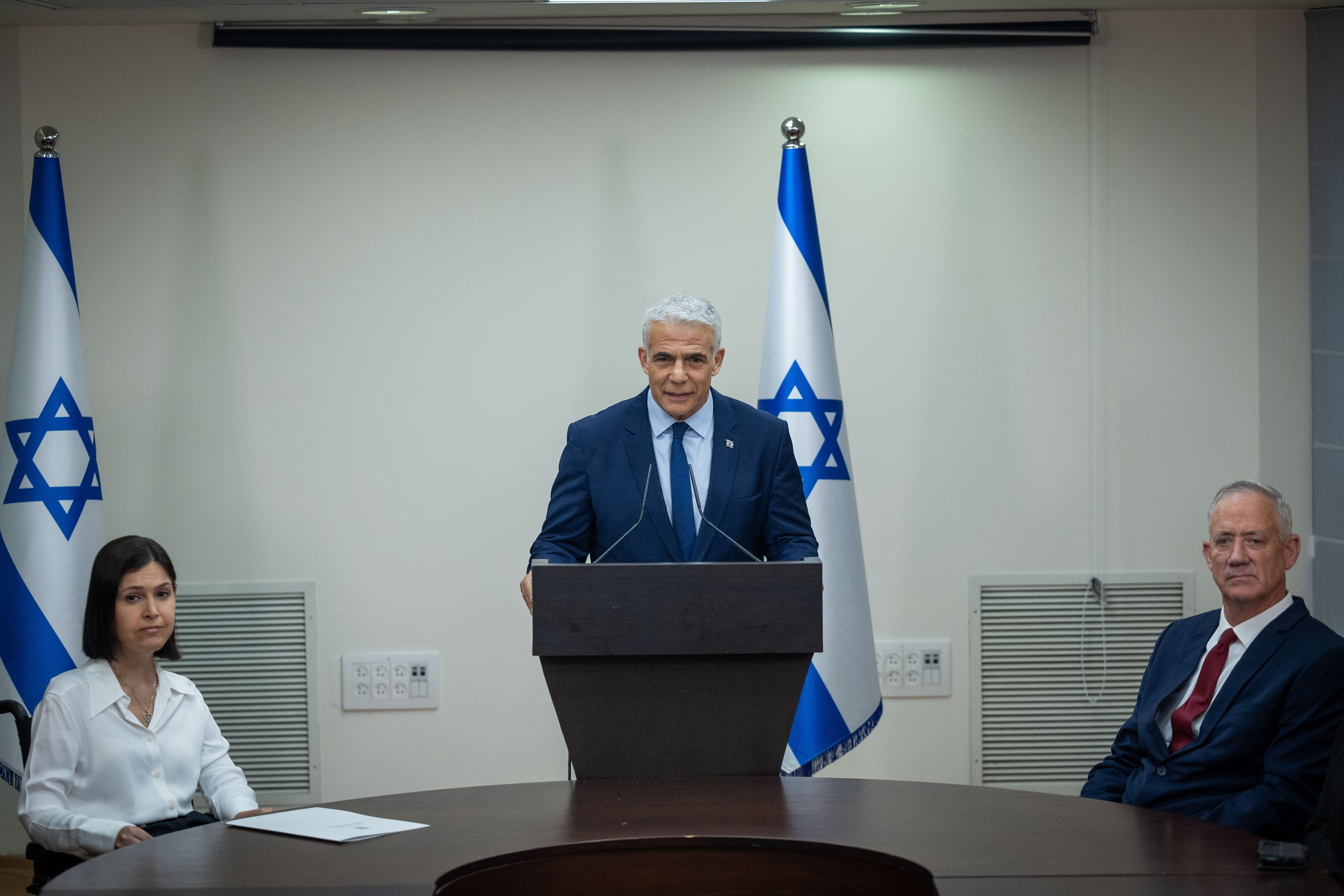The Knesset Failed to Choose Two Representatives. What Happens Now?
All the Questions and Answers
According to the Knesset bylaws, if there are not sufficient votes to elect two candidates to represent the Knesset at the Judicial Selection Committee (JSC), a new election for the vacant seat will be held within a month. But before then, on June 20, the Israel Bar Association will hold elections to its various bodies, and if its two new representatives on the JSC will vote with the coalition, the coalition will effectively be able to appoint judges to the lower courts.

Photo by Yonatan Sindel/Flash90
The JSC has nine members: two ministers (one of them the Minister of Justice), two Knesset members, three Supreme Court justices, and two representatives of the Israel Bar Association. This balanced arrangement is intended to preserve the principle of judicial independence and ensure that judges are selected on professional, rather than political, grounds.
Under the law, the Knesset elects its two representatives (at least one must be a woman) by secret ballot. They serve on the JSC for the duration of the Knesset term and until a new Knesset elects their replacements. Under the Knesset bylaws, if only two individuals submit their candidacy for the two slots, as was the case this time, the secret ballot is “for” or “against.” For an MK to be elected, he or she must receive more “for” than “against” votes. Only MK Karine Elharrar cleared this hurdle, and this is the first time that this scenario has occurred.
Under the Knesset bylaws, if it fails to select two representatives, a second election to fill the vacant slot or slots must be held within 30 days. This means that the second representative can be chosen at any time in the next month.
So far as the law is concerned, there is no problem in convening the JSC even without all its members. Today, there are two vacancies: the second Knesset representative and the minister to be appointed by the Government. The JSC may continue to function as long as it has at least seven members. However, by law, the Justice Minister serves as the committee chair and has the sole authority to convene it. As of now, the Justice Minister has not announced his intention to convene the committee, even though there is a need to fill openings in the district and magistrate’s courts to replace judges who have retired. The current situation and expected vacancies will leave the courts short-handed.
On June 20, the Israel Bar Association (IBA) will hold elections for its Chair, national council, and other positions. Because the National Council of the Bar chooses the Bar Association’s two representatives on the JSC, the Knesset will soon know whether attorneys who support the coalition and its goals have attained a majority on it. Should this happen, when the terms of the two current Bar Association representatives who currently sit on the JSC are over (in July and November), the IBA may choose attorneys who will cooperate with the Justice Minister and the other Government and coalition members of the JSC.
If the Knesset elects a member of the coalition as its second representative on the JSC and the two IBA representatives are coalition supporters, the Government will be able to relatively easily select judges for all courts except the Supreme Court, as only a simple majority of five is required for lower court judges (as opposed to the Supreme Court, where a supermajority of seven of the nine members is required to appoint new justices). In this case, the Government would also be able to ignore the accepted tradition of seniority that has been in place for many decades by which the JSC chooses the justice who has served on the Supreme Court’s bench for the longest period of time, to serve as President of the Supreme Court, and instead select a chief justice based on partisan and ideological preferences. A number of coalition members have stated their intentions in meetings of the Knesset Constitution, Law and Justice Committee to ignore the tradition of seniority. It is generally accepted that only five votes are required to select the chief justice.
If they succeed in selecting a chief justice base on a simple coalition majority, it would in effect begin the implementation of a major component of the planned judicial overhaul which seeks to install justices based on political specifications rather than their professional standing. This would be accomplished without passing any new legislation in the Knesset.
